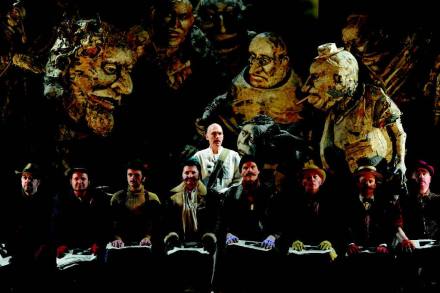Women on top | 2 October 2010
Although Made in Dagenham is far from perfect and has a particular fondness for those impromptu speeches which turn out to be stirringly spot-on, it is so warm-hearted and affectionate it wouldn’t be right to take against it. Although Made in Dagenham is far from perfect and has a particular fondness for those impromptu speeches which turn out to be stirringly spot-on, it is so warm-hearted and affectionate it wouldn’t be right to take against it. It would be like kicking a puppy or, perhaps, randomly plonking a cat in a wheelie bin, of which, I believe, there has even been a recorded incidence. It is also just such a














